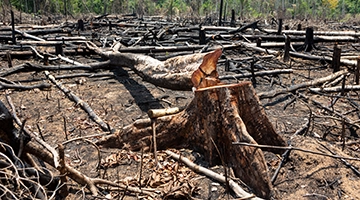 https://www.3keel.com/wp-content/uploads/2025/12/deforestation_sf.webp
200
360
Anna Kitulagoda
https://www.3keel.com/wp-content/uploads/2023/04/3keel_logo-1.png
Anna Kitulagoda2025-12-11 09:49:342025-12-11 12:07:17EUDR delayed: 3Keel urges focus on ending deforestation
https://www.3keel.com/wp-content/uploads/2025/12/deforestation_sf.webp
200
360
Anna Kitulagoda
https://www.3keel.com/wp-content/uploads/2023/04/3keel_logo-1.png
Anna Kitulagoda2025-12-11 09:49:342025-12-11 12:07:17EUDR delayed: 3Keel urges focus on ending deforestationCASE STUDY British Beer & Pub Association (BBPA)
Assessing risk and building resilience in UK brewing
In 2025, 3Keel delivered a ground-breaking climate risk analysis for the UK brewing industry, highlighting growing risks to barley and hops production posed by climate change, identifying priority adaptation measures, along with the sector-wide actions needed to implement them.
Overview
Funded by the British Beer & Pub Association’s Brewers’ Research & Education Fund, the report UK Brewing Sector Risk and Resilience, was commissioned by the Zero Carbon Forum (ZCF). This work represents a crucial step for the industry in preparing for a future where drought, temperature shifts, and flooding are likely to disrupt raw material availability, quality, and pricing.
Challenge
Barley and hops — the backbone of beer — are vulnerable to climate variability. With shifting rainfall patterns, rising temperatures, and increased flooding risk, UK-grown crops are facing pressure. These impacts threaten to:
- Diminish crop yields and brewing quality
- Input ingredient price volatility
- Disrupt consistent supply chains for brewers
For an industry reliant on specific varieties and growing regions, the stakes are high and inaction could lead to both supply instability and increased costs.
3Keel’s Approach
We worked closely with sustainability and supply chain team members from BBPA and Zero Carbon Forum. UK hop and barley grower associations were also engaged directly to provide on-the-ground insights. We started by conducting a comprehensive UK risk assessment of three primary physical climate hazards:
- Temperature Change
- Drought
- Flooding
We conducted modelling based on an IPCC warming scenario to evaluate how each hazard could affect the UK’s core barley and hop growing areas, particularly in the East of England, Kent, and Herefordshire. We drew on our experience in physical climate risk assessments, leveraging GIS mapping to visually depict risk-ingredient location hotpots.
Key findings included:
- Growing drought risk in key UK barley regions due to a projected 7.2% reduction in summer rainfall by 2040
- ~10% increase in autumn rainfall projected in concentrated hop-growing areas, elevating flood risk
- Potential increased prioritisation of barley for food over brewing input during tight supply periods
- Threats to unique international hop varieties, essential to brewing flavour profiles, due to extreme heat and flooding events
Adaptation: 10 measures for sector resilience
In response to these risks and using our knowledge of agricultural supply chains and strategic sector advisory experience, we identified and evaluated 10 adaptation measures. These ranged from technical interventions to ecosystem-based solutions, spanning:
- Water management innovations
- Climate-resilient crop varieties
- Soil health and regenerative practices
- Technology deployment and real-time monitoring
Each measure was assessed for feasibility, cost, implementation barriers, and co-benefits such as reduced GHG emissions, biodiversity support, and improved water retention.
The analysis found that targeted farm-level adaptation is crucial and that brewers must play a leadership role by:
- Offering long-term sourcing contracts
- Providing financial support for transitions
- Creating knowledge-sharing platforms for farmers
Industry-wide call to action
The report concludes with seven strategic recommendations for the brewing industry to collectively safeguard its supply chains:
- Enhance collective traceability in barley and hops sourcing
- Collaborate pre-competitively to reduce duplication and scale impact
- Finance farmer-led adaptation initiatives
- Adopt a landscape-scale resilience approach
- Incentivise regenerative practices
- Fund R&D in innovative brewing solutions
- Share knowledge and farm pilot outcomes
The recommendations were developed taking a sector-wide perspective, recognising that the most effective response to climate risk requires collective action across UK brewers.
Impact
By equipping the brewing sector with both a clear-eyed risk analysis and a toolbox of practical measures, this research lays the foundation for action. It also provides a replicable model for other sectors facing climate-linked supply risks. The UK’s brewing sector body, the BBPA, is currently considering concrete next steps to translate these recommendations into reality. These might include: a UK brewing sector climate alliance; improved mechanisms for gathering sector souring data; or exploring landscape-based regenerative agriculture initiatives.
Emma McClarkin, CEO of the BBPA, said: “This important research couldn’t sound the alarm any clearer; we now know the risks climate change poses to our sector. More importantly, this should be heeded as a rallying cry that we all need to pull together and collaborate so we can protect our unique heritage and homegrown crops.”
See the report in full: UK Brewing Sector: Climate risk and resilience.





